01 Jun2015
By Linda McKee

Educator preparation faculty at Nazareth College in Rochester, NY, like to meet with faculty in other departments to compare notes about how their teacher candidates are doing and how best to support them across study areas.
“That’s just the environment we work in. They are all of our students, as they major in education and an area of the liberal arts and sciences,” explains Kate DaBoll-Lavoie, professor and immediate past chair of the Department of Inclusive Childhood Education at Nazareth. “We want them to succeed. We support our colleagues.”
For the past 2 years, DaBoll-Lavoie and her colleagues have brought to the table new data that have enriched the conversations and helped to focus them on specific needs of students.
05 May2015
By Donna Sacco
At last month’s conference of the American Educational Research Association, I attended a joint business meeting of two special interest groups—Professional Development School Research and Supervision and Instructional Leadership—focused on the role of supervision of instruction in professional development schools (PDSs) from preservice to retirement. Panelists included AACTE’s Linda McKee, senior director of performance measurement and assessment policy; Daisy Arredondo-Rucinski, University of Alabama; and Bernard Badiali, Pennsylvania State University.
04 May2015
By Jerrica Thurman

AACTE joins the National Education Association (NEA) and the National Parent Teacher Association (PTA) in celebrating terrific teachers during National Teacher Appreciation Week, May 4-8, and National Teacher Day, May 5.
“Teachers work every day to meet the needs of our students, often in the face of significant challenges,” said AACTE President/CEO Sharon P. Robinson. “We are so grateful for their dedication.”
01 May2015
By Mark Ginsberg
I am honored to assume the role of chair of AACTE’s Board of Directors at such an exciting time for the organization and the profession as a whole. Nine weeks into my yearlong term, I’m eager to share my excitement with you about the work we’re doing together.
Most visible so far is our focus on accreditation, particularly our efforts to initiate a collaborative dialogue with the Council for the Accreditation of Educator Preparation (CAEP). This dialogue aims to address concerns expressed by many AACTE members while continuing our support for CAEP as the field’s unified accrediting body.
Although important—in fact, critical—for our field, our work with CAEP is but one of a large portfolio of topics on AACTE’s agenda.
28 Apr2015
By Jerrica Thurman
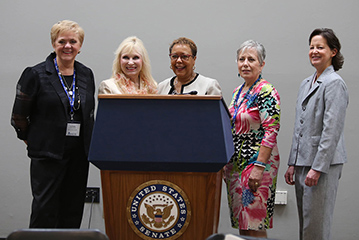
Participants in Day on the Hill join Sharon Robinson during Washington Week
Every year, AACTE’s Washington Week attracts hundreds from around the nation. Read these testimonials from recent participants about the value of attending:
20 Apr2015
By AACTE
AACTE applauds the leadership of U.S. Senate HELP Committee Chairman Lamar Alexander (R-TN) and Ranking Member Patty Murray (D-WA) on the unanimous, bipartisan passage of the Every Child Achieves Act of 2015 (ECA). AACTE is pleased with the committee’s progress on the long overdue reauthorization of the Elementary and Secondary Education Act (ESEA).
The bill moves away from the "test and punish" strategy that evolved from the implementation of the current version of ESEA, known as the No Child Left Behind Act of 2001. While the bill retains the requirement for annual assessments disaggregated by subgroups, it leaves states, schools, teachers, and parents to determine what to do about the results of those assessments. AACTE believes students would benefit from stronger accountability for subgroup results, but overall, the bill makes important bipartisan progress toward fixing a broken law.
06 Apr2015
By Sharon Robinson
News Flash! The interest of students and their opportunity to learn is not better or even well served by a strategy of constant and high demand of inexperienced teachers. Retention matters, not just to teachers but, most critically, to students.
Recent studies showing that teacher effectiveness continues to develop over time reinforce this imperative to do right by our students. First, in a working paper completed last year for the National Center for Analysis of Longitudinal Data in Education Research, researchers at Duke University found that middle school teachers’ effect on student test scores as well as attendance rates improves over at least several years. A subsequent study out of Brown University found improvement in teacher effectiveness is indeed steepest in the early years in the classroom but continues for many more years, challenging the common perception that teacher quality is a fixed characteristic after just a couple of years of experience.
31 Mar2015
By Zachary VanHouten
Attendees of the 67th AACTE Annual Meeting in Atlanta were offered an opportunity to meet with a U.S. Department of Education official to discuss the Teacher Quality Partnership (TQP) grants and how they may explore applying for them in the future.
In a concurrent session presentation, Mia Howerton of the U.S. Department of Education Office of Innovation and Improvement provided attendees with an overview of the TQP grants and what the profile of a successful grantee applicant typically looks like. With the TQP program now in its third grant cycle, Howerton reviewed the successes and challenges of the program and shared its lessons with audience members.
25 Mar2015
By Nicole Merino
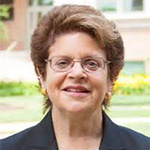
A Conversation With Harriet “Niki” Fayne, Dean of Education at Lehman College
Harriet “Niki” Fayne, dean of education at Lehman College (City University of New York) in the Bronx, isn’t about to say that edTPA was easy for her faculty and students, or that it is the final answer for teacher preparation. But she does say this: edTPA moves the profession in the direction of strengthening the skills of beginning teachers.
17 Mar2015
By Mark LaCelle-Peterson
Representatives from AACTE and member institutions joined thousands of other educators convening in Washington, DC, last weekend at the National Board for Professional Teaching Standards’ star-studded second annual Teaching & Learning conference.
AACTE President/CEO Sharon P. Robinson spoke at a plenary session on preparing novice teachers, joining a panel that also included Linda Darling-Hammond (Stanford University, CA) and Terry Holliday (Kentucky commissioner of education), moderated by American Federation of Teachers President Randi Weingarten.
10 Mar2015
By Christine DeGregory
One of the things I appreciate most about conferences is how the small groups of teacher educator voices residing within our home institutions can join together with others to create an impressively large chorus—one whose collective power can provide needed volume and attention to important issues.
At the AACTE Annual Meeting in Atlanta, I was encouraged to have my quiet voice as a future teacher educator amplified, thanks to the company of so many colleagues who share my passion about creating a developmental continuum that recognizes, values, and utilizes the expertise of classroom teachers in preservice teacher preparation and induction.
25 Feb2015
By Sharon Robinson
The following letter to the editor was published in the Washington Post February 23, in response to the February 20 commentary by the University of Virginia’s Robert C. Pianta, “Teacher Prep Programs Need to Be Accountable, Too.”
Robert C. Pianta vastly oversimplified the narrative about accountability among those who prepare educators.
Educator preparation programs should indeed be accountable, and the profession has been busy creating data tools and processes for accountability. States such as Louisiana, California, and Georgia are working to determine the best ways to use data collected through existing assessments and surveys to document program impact. These systems rely on access to K-12 student achievement data as one indicator.
05 Dec2014
By Julie Underwood
Public education lost one of its most powerful voices on Saturday, November 29, when John Goodlad passed away.
He had worked in educational institutions at all levels, teaching in a one-room school in Canada, as dean of the Graduate school of Education at UCLA, and as founder of the Center for Education Renewal (http://www.ieiseattle.org/CER.htm ) and the Institute for Educational Inquiry (http://www.ieiseattle.org ).
01 Dec2014
By Kristin McCabe
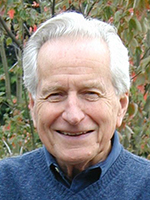 John I. Goodlad, a giant in 20th-century education and former elected president of AACTE, died November 29 in Seattle. He was 94.
John I. Goodlad, a giant in 20th-century education and former elected president of AACTE, died November 29 in Seattle. He was 94.
After 8 years of teaching in his native Canada — in the challenging conditions of a one-room schoolhouse and, later, a juvenile detention center — Goodlad completed his bachelor’s and master’s degrees at the University of British Columbia and then came to the United States for doctoral work at the University of Chicago. By age 29, he was head of teacher education at Emory University (GA). He briefly returned to the University of Chicago before moving in 1960 to the University of California Los Angeles, where he spent 24 years, the last 16 as education dean.
24 Nov2014
By Jerrica Thurman
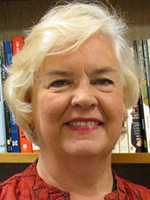
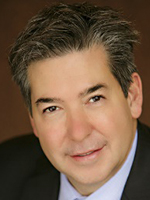
AACTE has hired two new senior directors in the Department of Policy and Programs. Linda S. McKee is the Association’s senior director for performance measurement and assessment policy, and Rodrick S. Lucero will be senior director for member engagement and support.
“We are delighted to welcome Linda and Rod to AACTE,” said Mark LaCelle-Peterson, AACTE vice president for policy and programs. “Each of them brings extensive experience in education, from public schools and higher education to work with associations. They’ll add to our ability to respond to the needs of our members in an immense way.”











 John I. Goodlad, a giant in 20th-century education and former elected president of AACTE, died November 29 in Seattle. He was 94.
John I. Goodlad, a giant in 20th-century education and former elected president of AACTE, died November 29 in Seattle. He was 94.
